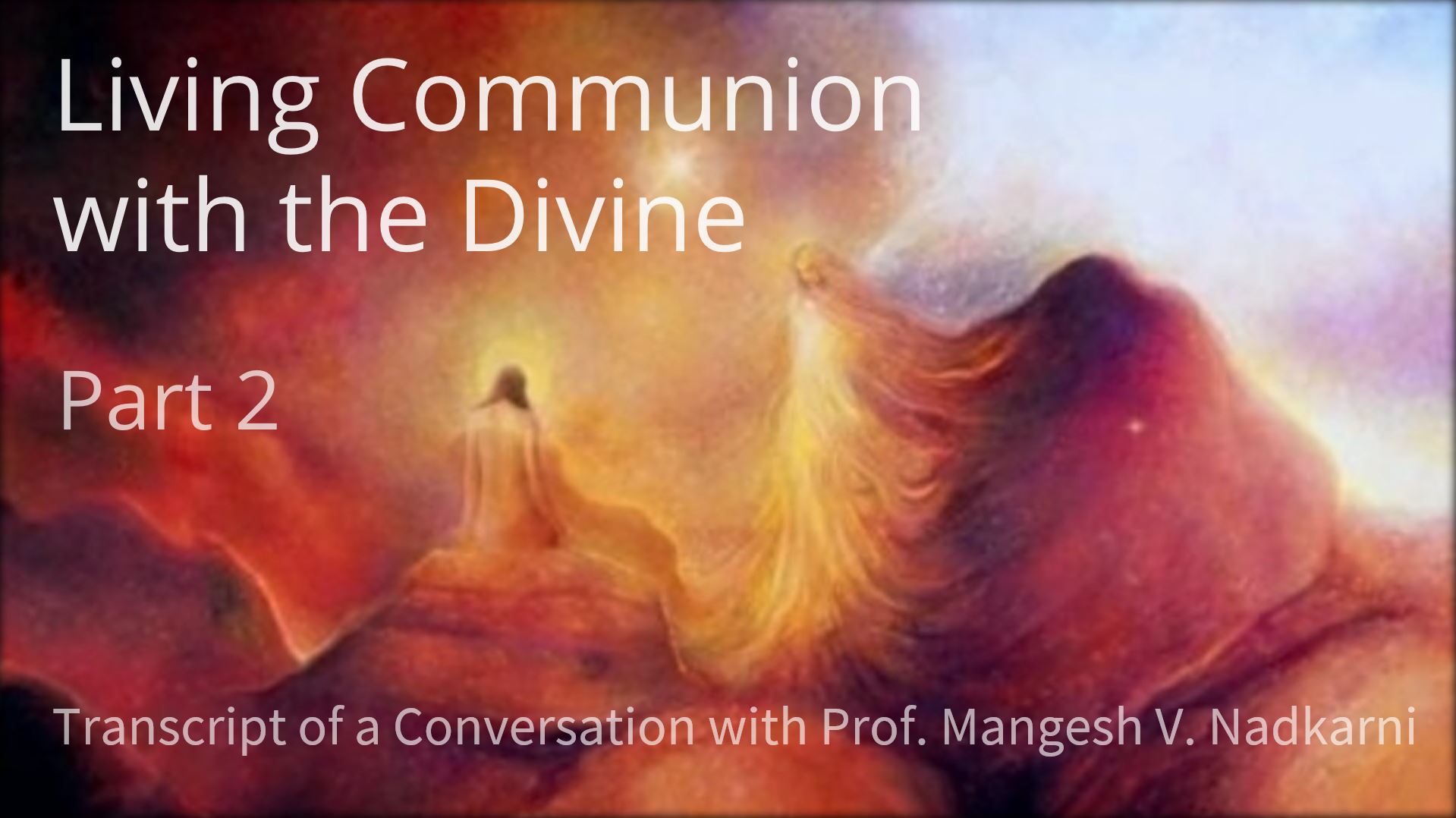
QUESTION 2: Sri Aurobindo has also said that the first condition for sadhana is to cut yourself off from other things; then only you will be able to tread the real path of yoga and not otherwise. If you have other obligations, social, material or other, then you may be a well-wisher but not a real seeker of this path. Therefore, complete all the obligations you have in the world, or cut them off, and then be here. Then the sadhana begins, then you are entitled to be an Ashramite and not otherwise.
Well, most of us householders wish to turn to God and take up the spiritual life when we have fulfilled our worldly obligations. But for many of us that day of emancipation does not come, because the more you give yourself to this worldly life, the more it wants of you. At what point do you stop? You have settled all your sons and daughters in life. Is that enough? What about your grandchildren? Don’t you love them just as dearly? So you go on and on.
In one sense, your time to turn to God comes when you have heard his call. When the inner call came, the Buddha left his young wife and infant child and his ageing parents and went into the wilderness, never to come back again. But we are not all Buddhas. For most of us, when the call first comes, it is not strong enough; the awakening to the necessity of a life totally devoted to the Divine is still feeble. We are not yet ready to regard yoga as the only aim to be pursued in life. In such a situation, many things can hold us back, and one of them is this awareness of our responsibility to those who are dependent on us. This does not hold back all people. Some people sincerely feel; “After all, God looks after the whole world, so He will find ways of looking after my people when I relinquish this responsibility to them.” On the other hand, turning to spiritual life should not be an act of irresponsibility, of cowardice. When you can’t cope with the problems you face in life, you may be tempted to take an easy escape route. You may think that if you turn to God and take up a spiritual life, nobody will expect you to discharge your worldly responsibilities. It does not usually happen like that. Still, in some cases even this may prove to be the beginning of a genuine turning towards God. So in spiritual life, each case is different and you can’t make a general rule that applies to all.
Even after the call comes, most people need a preparatory time before they can take the irrevocable decision. During that preparatory period, they remain in life and live their daily life in the spirit of sadhana. They try to discharge all their obligations in the attitude of a yogin. This itself prepares them for a spiritual life.
Really speaking, in Sri Aurobindo’s yoga there is no separation between secular life and spiritual life. Whether you are negotiating a business deal, countering a competitor in your trade, settling the marriage of your son or daughter, or handling your neighbours or relatives, some of whom may be nasty, you should be able to take up each of these activities in the spirit of sadhana. If you are capable of doing this, there is no need for you to turn your face from life. Then you don’t have to wait until all your family responsibilities have been discharged. You are already living the life of a yogi.
Those who have joined the Ashram belong to a different category. They have already made their choice and for them the Divine is the only purpose in life. They have consecrated all of themselves to the Divine. For them there are no social obligations and duties to discharge.
These comments of Dr. Mangesh Nadkarni were made on 7 March 2001 in conversation with two Bombay businessmen, who asked three questions on how to attain a living communion with the Divine. Dr. Nadkarni has edited the transcript of his tape-recorded remarks for publication.


About Savitri | B1C3-06 The Divine Successor of Man (pp.27-28)